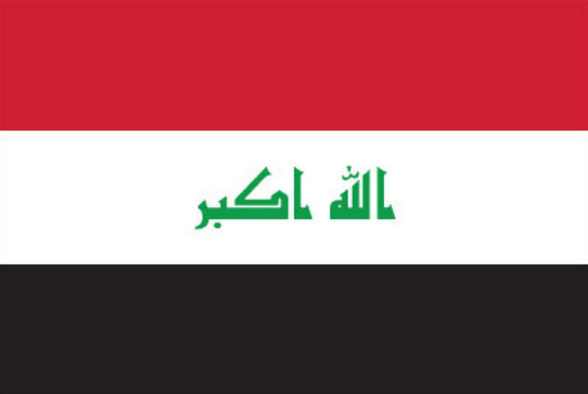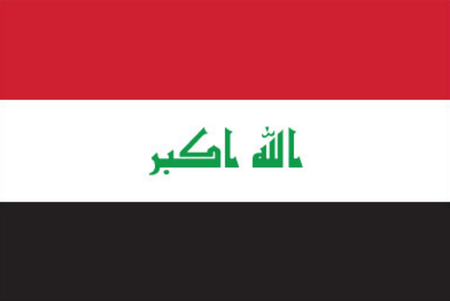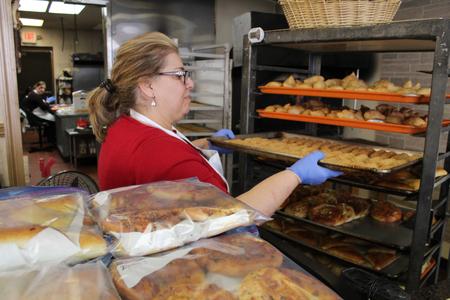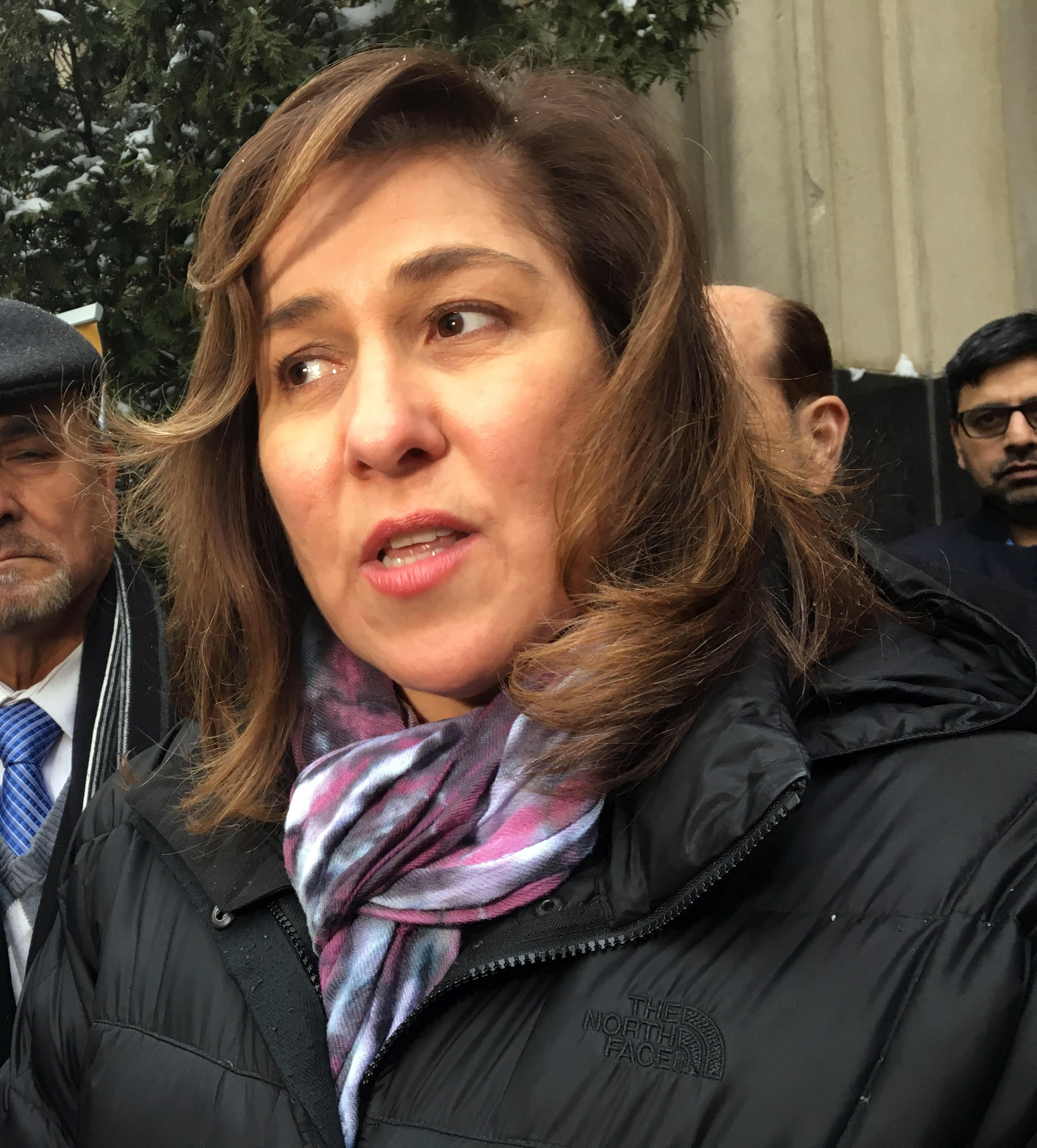Detroit’s Christian Iraqi-Americans Support the Immigration Order
Members of the largest concentration of Chaldeans outside of Iraq weigh in on the travel restrictions.

When Carleen Jarbo’s office opened the first work day after President Trump’s executive order on immigration, she was greeted with long lines.
“I had 11-plus voicemail messages, all just clients with green cards voicing their concerns over whether they can leave the country or what’s going to happen to their green card. (They were asking) should they apply to citizenship right away?” says Jarbo, an immigration attorney who works at the Chaldean Community Foundation in Sterling Heights.

Metro Detroit is home to the world’s largest population of Chaldeans – Christian Iraqis – who live outside of their home country. Iraq is one of the seven countries named in Trump’s executive order, which means Iraqi citizens are barred from coming to the United States for 90 days.
But that doesn’t mean Chaldeans oppose Trump’s action.
“When people call it a ban, it kind of just makes me raise my eyebrows a little bit just because it seems more like a temporary suspension,” Jarbo says. “I don’t think of it as a hateful thing, something that might seem extremely unfair. It’s a 90-day halt.”
She points to President Obama’s 2011 order that led to a more stringent visa review process that delayed Iraqi travelers for months and says Trump’s Jan. 27 directive is forcing a further review.
“I think the whole idea behind it is to vet the vetting system,” she says.
Trump’s order barred travelers from seven countries — Iraq, Iran, Libya, Somalia, Sudan, Syria and Yemen — from entering the United States for 90 days. It also suspended refugee admissions for 120 days, capped the number of refugees allowed into the United States in 2017, and barred Syrian refugees indefinitely.
Read the full text of the executive order here.
Michigan has been the first destination for more than 25,000 refugees from six of the seven countries during the last 15 years, more than 20,000 of those from Iraq.
Click on each bar in the graph to see a breakdown of arrivals by year:
Metro Detroit’s Chaldean population began migrating in the early 20th century, largely from northern Iraq, to find work in auto plants. Chaldeans are members of a Catholic sect and are considered one of the oldest ethnic groups in their home country. As they settled and assimilated in Detroit and its suburbs, they established a community with business networks in grocery stores, real estate, hotels and other sectors.
U.S. immigration laws changed in the 1960s, making it easier for people in the Middle East to re-settle here, and Michigan’s Chaldean population increased during the 1970s. Then, shortly after the first Gulf War in the early 1990s, another wave of Christian Iraqis came, followed later that decade by more as the United Nations sanctions made living conditions harsher. Still, the Chaldeans were not particularly targets of Iraq’s then-ruler Saddam Hussein.

But following the Iraqi government’s destabilization after the U.S. military action that began in 2003, Christians were increasingly the targets of violence. It took nearly five years before the U.S. began accepting greater numbers of them as refugees. When the U.S. State Department made it easier for Iraqis to come, many of them came to Michigan where they had family members.
IRAQI VOICES
Sami Tappo was one of the arrivals in the 1970s. He recounts how his family took a bus from Iraq to Turkey and then lived in Greece for a little over a year.
“And then we came in here – to the United States – and they took care of us,” he says.
Now an American citizen and a worker in an auto parts plant, he is a Trump supporter and speaks in favor of the executive order.
“I think there is a lot of bad people over there. They want to come here,” he says. “Like ISIS, they’re killing all those Christians. They are not good.”
Tappo says he is worried about the Christians in Iraq, but he thinks that President Trump will help them in the future.
After all, Trump recently tweeted:
Christians in the Middle-East have been executed in large numbers. We cannot allow this horror to continue!
— Donald J. Trump (@realDonaldTrump) January 29, 2017

Bakery owner Sandy Shammas is also among Trump’s metro Detroit supporters. Shammas, who runs the Gold’N Oven Bakery in Sterling Heights with her son and daughter, says she came to the U.S. as a young girl in the 1970s so her brother would not have to join the Iraqi military. Shammas says she supports the ban, but she has reservations about how it was implemented. She thinks there should have been more warning.
Shammas’ daughter, Linda Dickow, says she sees her mother’s point but overall Dickow thinks President Trump made the right move.
“We need to build America up before we can help,” Dickow says. “If we are disabled, we are not able to help anybody. So in order to help America, we need to help ourselves first.”
TORN OPINIONS
But opinions in the Chaldean community are not unanimous. Nida Simona, senior vice president of the Arab American and Chaldean Council, spoke with reporters outside the federal courthouse in Detroit in support of a lawsuit challenging the executive order.

“I believe that this executive order is un-American. It goes against the grain of what this country stands for. This is a nation of immigrants and we have all built this country,” says Simona, whose Christian family also came from Iraq in the 1970s.
She points to the current 18-month minimum vetting process for refugees as being inappropriate. “These are children, women, families that have been torn apart from their own homeland,” she says. “Now they are continuously being torn apart and victimized as a result of this executive order.”
